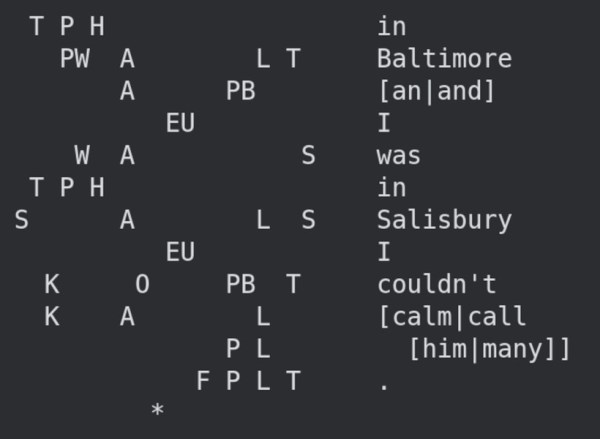Did artificial intelligence just jump the shark? Maybe so, and it came from the legal world of all places, with this report of an AI-generated victim impact statement. In an apparent first, the family of an Arizona man killed in a road rage incident in 2021 used AI to bring the victim back to life to testify during the sentencing phase of his killer’s trial. The video was created by the sister and brother-in-law of the 37-year-old victim using old photos and videos, and was quite well done, despite the normal uncanny valley stuff around lip-syncing that seems to be the fatal flaw for every deep-fake video we’ve seen so far. The victim’s beard is also strangely immobile, which we found off-putting.
court3 Articles
Hackaday Links: January 28, 2024
From the “No good deed goes unpunished” files, this week came news of a German programmer who probably wishes he had selected better clients. According to Heise Online (English translation), a freelance programmer — referred to only as “defendant” in the article — was retained by a company to look into a database problem in their system. His investigation revealed that the customer’s database was being filled with log messages from a third-party service called Modern Solution GmbH & Co. KG. over a MySQL connection to a remote server. Assuming this connection was dedicated for his client’s use, the programmer looked at the executable used to make the connection with a text editor, which revealed a password in plain text. Upon connecting to the remote database, he found that it not only contained data for all of Modern Solution’s customers, but also data for all the end users of their customers.
Realizing he’d unintentionally wandered into verboten territory, the programmer immediately backed out and contacted Modern Solutions. They quickly fixed the issue, and then just as quickly reported him to the police. Their “investigation” revealed that the programmer had “decompiled” the executable to obtain the password, in violation of German law. The judge agreed, stating that merely looking at and using the password constituted a criminal offense, regardless of intent and despite the fact that Modern Solution had provided the password to the programmer’s client when they sold them the software. The upshot of all of this nonsense? A €3,000 fine for the programmer, if the verdict stands on appeal. It could have been worse, though; German law allows for up to three years in prison for such offenses.
Preserving Floppy Disks
Time is almost up for magnetic storage from the 80s and 90s. Various physical limitations in storage methods from this era are conspiring to slowly degrade the data stored on things like tape, floppy disks, and hard disk drives, and after several decades data may not be recoverable anymore. It’s always worth trying to back it up, though, especially if you have something on your hands like critical evidence or court records on a nearly 50-year-old floppy disk last written to in 1993 using a DEC PDP-11.
This project all started when an investigation unit in Maryland approached the Bloop Museum with a request to use their antique computer resources to decode the information on a 5.25″ floppy disk. Even finding a floppy disk drive of this size is a difficult task, but this was further compounded not just by the age of the disk but that the data wasn’t encoded in the expected format. Using a GreaseWeazle controlled by a Raspberry Pi, they generated an audio file from the data on the disk to capture all available data, and then used that to work backwards to get to the usable information.
After some more trials with converting the analog information to digital and a clue that the data on the disk was not fragmented, they realized they were looking at data from a digital stenography machine and were finally able to decode it into something useful. Of course, stenography machines are dark magic in their own right so just getting this record still requires a stenographer to make much sense out of it.












